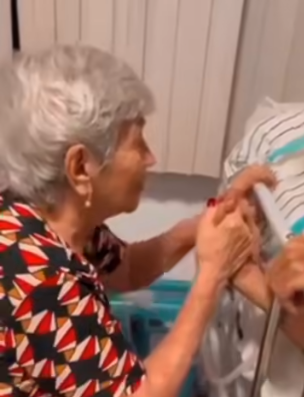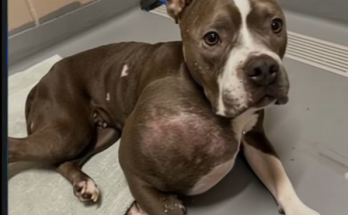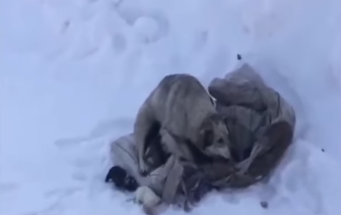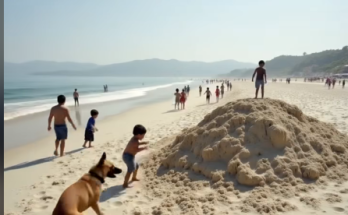He hadn’t spoken in two days, just lay there—eyes cloudy, breath shallow. But when she walked in, hair neatly done and dress ironed, his face LIT UP.
She held his hand and whispered, “It’s me, love. I kept my promise.” His fingers trembled, and he mouthed one word over and over until the nurse burst into tears and said, “He’s been waiting for you.”
Everyone thought he wouldn’t last the weekend. The hospital staff had already begun making quiet preparations—notes for the family, soft reassurances, and an extra box of tissues at the nurse’s station. He was fading quickly, but when she arrived, it was like someone had turned the sun back on inside him.
Her name was Kathleen, though most people just called her Kat. She was in her early seventies now, but she still moved with the same grace she had when they’d first met over five decades ago at a local dance in Bristol. He, Bernard, had been a shy railway worker back then, and she a schoolteacher with a stubborn streak and a laugh that could carry through a storm.
They’d been married for 49 years. Not every year was easy—money got tight, jobs were lost, their only son, Peter, died in a motorbike accident at 19. But they stuck together like ivy to an old stone wall, always clinging, always holding on.
The promise she mentioned was made ten years ago, right after his first stroke. He was in recovery, frustrated with his slow speech and weaker side, and one night as she tucked him in, he grumbled, “If I go before you, don’t fuss. But if you go first, I won’t last two weeks.”
She had chuckled and said, “We’ll go together then, won’t we? But if not, I promise I’ll be there at the end. You won’t be alone.”
And so when the hospital called, she caught the earliest train, packed a bag, and wore the pale blue dress he always said made her look like “a piece of the sky.” She knew it might be the last thing he’d ever see.
The word he mouthed again and again was “home.” The nurse, a young woman named Julia who had only been working palliative care for six months, had to step out of the room to gather herself. She later said it was one of the most touching things she’d ever witnessed.
Kat bent down and kissed his forehead. “You’re going home, Bernie. You’re not alone. I’m right here.”
They sat like that for nearly an hour, his breathing raspy but steady, his fingers locked weakly around hers. She told him old stories—about their first holiday in Wales, how he burned the sausages trying to impress her with breakfast, how Peter once tried to build a treehouse but ended up nailing himself to the wood instead.
As she spoke, his eyelids fluttered now and then, but mostly he just listened. The machines beeped steadily beside him, the IV slowly dripping its contents into his thin, veiny arm.
Then, just as the sun began to sink behind the hills outside, he opened his eyes and looked straight at her.
“I’m… not scared,” he whispered, surprising them both.
She leaned in closer, tears forming at the edges of her eyes. “That’s good, love. There’s nothing to be scared of.”
He blinked slowly, and then with all the strength he could muster, he said, “You made it.”
Those were his last words.
He passed quietly that night, holding her hand, the smile still faintly resting on his face.
After the funeral, people came and went with casseroles and sympathy cards. Some neighbors dropped by to share stories—how Bernard once shoveled their driveway during the worst snowstorm in years, or how he fixed old bicycles for the kids on the street for free.
Kat was grateful, but a numbness settled inside her. Nights were the hardest. The house was too quiet, and she’d sometimes find herself cooking for two before realizing she only needed one plate.
It was a few weeks later that she received the letter.
It had no return address, just her name in familiar, scratchy handwriting.
Inside was a note from Bernard. “If you’re reading this, I’ve gone ahead. Don’t cry for me. I had everything I ever wanted. And if you’re feeling lost, I’ve arranged something to help you find your way back.”
Attached was a phone number and an address in Devon. Curious and needing a distraction, she called.
The man on the line introduced himself as Clive, an old friend of Bernard’s from his railway days. He explained that Bernard had set up a donation in her name to a local charity that taught underprivileged children how to read. “He said it was your favorite thing to do,” Clive added. “Teaching.”
Kat was stunned. She hadn’t taught in over twenty years, but the idea of being connected to children again… it stirred something inside her.
She took a trip down to Devon and visited the center. The kids were full of energy, faces beaming as they ran up to her with books and crayons. A little girl named May clung to her leg and asked, “Are you the reading lady?”
Kat laughed for the first time in weeks. “I suppose I am.”
She started volunteering there twice a week, teaching phonics and reading stories in her warm, melodic voice. Slowly, the ache in her chest began to loosen.
One day, while helping May with her alphabet, she noticed a boy sitting alone by the window, staring out at the trees.
“That’s Noah,” one of the staff said. “He’s new. Doesn’t talk much.”
Kat didn’t push. She waited, and eventually, he started joining the group. First for just a few minutes, then for full sessions. He loved stories about trains, and she brought in one of Bernard’s old train whistles to show him.
“You can keep it,” she told him gently. “It belonged to someone very kind.”
Over the months, she and Noah grew close. He reminded her of Peter in some ways—quiet but thoughtful, with a deep curiosity about how things worked.
It wasn’t long before his foster mother approached Kat and asked if she might consider being part of Noah’s life more permanently. “He responds to you like no one else,” she said. “Would you ever consider being his guardian?”
Kat was speechless. She hadn’t expected her life to turn like this. But after talking with her solicitor and thinking deeply about it, she agreed.
At 73, she became Noah’s legal guardian.
Her friends called her brave. She didn’t feel brave—just… alive again.
Raising Noah wasn’t always easy. He had nightmares sometimes, and school could be a struggle. But every time he came running to her with a new drawing or climbed into her lap with a book, she felt Bernard smiling somewhere nearby.
One afternoon, as they sat on the back porch with mugs of cocoa, Noah turned to her and said, “Are you sad about your husband?”
Kat looked at the horizon and smiled softly. “Sometimes. But he gave me the best parting gift I could’ve asked for—you.”
Years passed. Kat watched Noah grow into a kind, clever teenager. He became the first in his class to read an entire novel on his own, and later he won a local essay contest with a story titled The Train That Waited—a tribute to Bernard.
On the day of Noah’s graduation, he walked up to the stage in his cap and gown, then looked straight at Kat and said, “This is for the woman who taught me to read—and to hope again.”
The crowd stood and applauded.
Afterward, she found a quiet corner and opened the small wooden box she’d brought. Inside was Bernard’s last letter and a picture of the two of them dancing in their kitchen, taken on their 30th anniversary.
“I kept my promise,” she whispered, “and so did you.”
That night, as Noah lit a candle beside Bernard’s photo, he asked, “Do you think he’s proud of us?”
Kat hugged him tightly. “I think he never stopped being proud.”
Sometimes, life pulls people apart. Time steals away the ones we love. But sometimes, promises echo louder than grief, and kindness passed on becomes a legacy that never fades.
Kat didn’t just keep her promise. She built something new from the ashes of goodbye. And in doing so, she gave a little boy a home, and herself a second chance at joy.
Love doesn’t always end—it just changes shape.



